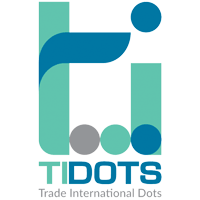
Strategies for Success
International trade offers vast opportunities for growth and market expansion, but it is accompanied by a range of risks that can impact businesses significantly. From geopolitical instability and economic volatility to regulatory changes and supply chain disruptions, understanding and managing these risks is essential for maintaining resilience and achieving long-term success. Here’s a detailed examination of these risks, their real-world impact, and effective strategies to mitigate them, supported by figures and examples.
Identifying Common Risks in International Trade
Geopolitical Risks
Political Instability: Political instability can severely impact trade relationships and business operations. For instance, the U.S.-China trade war, which began in 2018, led to the imposition of tariffs on over $360 billion worth of Chinese goods, affecting countless businesses globally. According to the Peterson Institute for International Economics, the trade war reduced U.S. GDP by approximately 0.3% in 2019.
Regulatory Changes: Regulatory shifts can introduce new barriers or costs. Brexit, for example, led to significant changes in trade dynamics between the UK and EU. According to a report by the Centre for European Reform, Brexit’s transition period caused a 7% drop in UK-EU trade in 2020, with businesses facing increased costs and complexities.
Economic Risks
Currency Fluctuations: Exchange rate volatility can impact the profitability of international transactions. For example, the depreciation of the Turkish lira by over 30% against the U.S. dollar in 2018 led to increased costs for Turkish importers and significantly impacted the financial stability of businesses dealing in Turkish currency.
Economic Downturns: Global economic recessions can reduce demand for exports. The World Bank estimated that global trade volumes contracted by 5.3% in 2020 due to the COVID-19 pandemic, leading to substantial financial losses for businesses engaged in international trade.
Regulatory Risks
Compliance Requirements: Adherence to diverse regulations can be challenging. For example, the European Union’s General Data Protection Regulation (GDPR) introduced significant compliance requirements for businesses handling data of EU citizens. Non-compliance can result in fines of up to €20 million or 4% of global annual revenue, whichever is higher.
Tariffs and Trade Barriers: Changes in tariffs can affect cost structures. The U.S.-China trade war’s tariffs resulted in a 25% increase in the cost of goods such as steel and aluminum, impacting industries that rely on these materials.
Supply Chain Risks
Disruptions: Natural disasters and logistical issues can disrupt supply chains. The 2011 Tōhoku earthquake and tsunami in Japan caused estimated losses of $235 billion and led to widespread disruptions in global supply chains, affecting industries ranging from automotive to electronics.
Dependency on Single Suppliers: Reliance on a single supplier can increase risk. For instance, the semiconductor shortage that began in 2020 highlighted vulnerabilities in global supply chains, with automotive manufacturers like Ford and General Motors experiencing production halts and financial losses.
Strategies for Risk Mitigation
Diversification
Market Diversification: Expanding into multiple markets reduces dependency on any single region. For example, Apple’s diversification strategy helped mitigate risks when the Chinese market experienced economic slowdowns, with Apple generating approximately 20% of its revenue from the Greater China region in 2021.
Supplier Diversification: Engaging multiple suppliers can reduce the impact of disruptions. During the COVID-19 pandemic, companies like Pfizer diversified their supply chains to avoid relying on a single source for critical components, helping to ensure the timely production of their COVID-19 vaccine.
Insurance
Trade Credit Insurance: This insurance protects against non-payment risks. According to the International Credit Insurance & Surety Association, the global trade credit insurance market was valued at around $13 billion in 2021, reflecting the growing need for financial protection in international trade.
Political Risk Insurance: Offered by entities like MIGA, this covers losses from political instability. The Multilateral Investment Guarantee Agency reported providing over $2 billion in political risk insurance to businesses in emerging markets in 2020.
Due Diligence
Partner Vetting: Thorough research on potential partners is crucial. For instance, the 2016 Panama Papers leak revealed the risks associated with inadequate due diligence, as numerous companies were implicated in tax evasion and illicit financial activities.
Market Research: Comprehensive market research helps in understanding risks. According to a McKinsey report, companies that invested in market research experienced 20% higher revenue growth compared to those that did not, highlighting the importance of informed decision-making.
Supply Chain Management
Contingency Planning: Developing contingency plans for disruptions is essential. The World Economic Forum’s Global Risk Report 2021 highlighted that companies with robust contingency plans were 50% more likely to recover quickly from supply chain disruptions compared to those without.
Logistics Optimization: Implementing advanced logistics solutions can enhance efficiency. For instance, companies using IoT-based logistics solutions reported up to a 10% reduction in operational costs and a 15% improvement in delivery times, according to a Deloitte survey.
Legal and Compliance Measures
Regulatory Compliance: Staying informed about regulations is vital. For example, companies adhering to the EU’s REACH (Registration, Evaluation, Authorisation, and Restriction of Chemicals) regulations faced significant compliance costs but avoided legal penalties and market access issues.
Contractual Protections: Well-drafted contracts can mitigate legal risks. According to a study by the International Chamber of Commerce, businesses that implement comprehensive contract management practices experience 25% fewer contract-related disputes.
The Role of Technology in Risk Management
Data Analytics: Advanced data analytics can enhance risk prediction. Companies using predictive analytics reported up to a 30% improvement in risk management efficiency, as per a report by Gartner.
Blockchain Technology: Blockchain enhances transparency and security. IBM’s TradeLens platform, which utilizes blockchain for supply chain management, has facilitated over 30 million shipments and improved supply chain visibility for participating companies.
Artificial Intelligence (AI): AI helps manage risks effectively. A study by McKinsey found that businesses using AI for risk management achieved a 15% increase in risk detection accuracy and a 10% reduction in operational risks.
Future Trends in Risk Management
Sustainability and Resilience: Emphasis on sustainability is increasing. According to a PwC report, 63% of global CEOs are integrating sustainability into their business strategies, reflecting the growing importance of sustainable practices in risk management.
Digital Transformation: Digital transformation is shaping risk management. The rise of digital trade platforms and real-time monitoring is expected to improve risk management efficiency by up to 20%, according to a report by Accenture.
Global Cooperation: International collaboration is enhancing risk management. The World Trade Organization’s Trade Facilitation Agreement aims to streamline customs procedures and reduce trade barriers, benefiting businesses engaged in global trade.
Conclusion
Effectively mitigating risks in international trade is essential for businesses seeking to thrive in the global marketplace. By identifying potential risks, implementing proactive strategies, and leveraging advanced technologies, companies can enhance their resilience and navigate the complexities of international trade with greater confidence. Staying informed about emerging trends and adopting innovative risk management practices will be key to sustaining growth and achieving long-term success in global commerce.
Tidots
Mettmaner str. 119 - 40882 Ratingen, Germany
+49-162-4195257
Quick Links
Newsletter
Get in touch about our new services, products and events




